Entertainment
Disintegration C.E. Aims to Fuel What Eric Robertson Calls Dance Music’s Creative Alchemy
Published
8 months agoon

After spending a quarter-century creating music largely in the shadows, Denver-based electronic artist Eric Robertson stepped into the spotlight under his stage name Disintegration C.E. in late 2024. His emergence isn’t just about getting his name out there—it’s about joining what he sees as dance music’s endless creative conversation that spans multiple directions at once.
“There was a point about ten years ago in my mid thirties that I kept asking myself.. why are you even still doing this if you aren’t going to share with…often literally, anyone?” Robertson explained. “I couldn’t answer that at first..but I kept asking myself because I was continued to feel compelled to create DJ mixes compulsively almost monthly. Then I realized it was really my way of journaling… sort of cataloguing the things I experience…for myself.”
It’s the kind of artistic doubt most creatives know well. Robertson’s realization that his monthly mix creation was essentially a form of musical journaling—a way to catalog his experiences—became the turning point for his eventual public emergence.
Like many artists, Robertson’s path wasn’t linear. He started out in rock music, wielding a rhythm guitar and lending backup vocals to various bands during his younger years. But his love for danceable music actually goes back even further—he remembers spending his own money in third grade to buy a C&C Music Factory cassette tape. Everything changed when he stumbled into the rave scene at 17—a discovery that would reshape his entire trajectory.

During his time at Pitzer College in Southern California, Robertson and a tight-knit group of friends started DJing together, taking turns opening for each other and throwing weekly gatherings at a converted campus coffee shop called “The Grove House.” It was the kind of grassroots musical community that many artists look back on fondly—intimate, collaborative, and driven purely by passion.
During this formative period, Robertson was exposed to influential artists including Donald Glaude, DJ Dan, Green Velvet, and Groove Armada, along with The Tidy Boys, Jon Bishop, John Kelly, MJ Cole, and Artful Dodger. However, his palette extends far beyond electronic music, incorporating influences from UK garage of the late 1990s and early 2000s, 80s new wave, indie rock, and contemporary trap and drill.
Robertson’s approach to his sound reflects this broader philosophy. Rather than getting boxed into rigid genre definitions, he describes his music as “Techno-Influenced House and House-influenced techno”—which really captures his belief in electronic music’s fluid, conversational nature. He’s all for dance music’s tradition of sampling, referencing, and sometimes completely flipping elements from other tracks. To him, that’s the collaborative spirit that spans time and geography.

His creative process is notably methodical. Robertson typically develops tracks in thematic clusters of three to five songs—what he privately considers EPs, even though he releases most as standalone singles. There’s something almost secretive about this approach, as if he’s creating these cohesive musical statements that only he fully understands.
His catalog includes standout tracks such as “House of the Acid Moon,” “Atlantic Brothers,” “Track for Luigi,” “Sad No More,” and “Valjean (Pay-A-Debt).” Most recently, he released “Weekend Holding” on May 21, which is also getting a remix treatment from Philippines-based producer Ricky Alfian. This followed earlier May releases “The Collapse” and “Hypnautik.”
When he talks about his influences, Robertson gets pretty specific about what draws him to certain artists. Green Velvet earns praise for his “use of mocking intellectualism,” while Nic Fanciulli impresses him with his ability to build “driving energy paired with melodic hooks.” He speaks of Vintage Culture with real admiration—someone he considers more of a contemporary—for maintaining a recognizable tech house foundation while fearlessly exploring different subgenres.

Danny Tenaglia’s mix CD “Mix This Pussy” holds special significance for Robertson. He credits it as the original spark for both his DJing and eventual move into original production. Those kinds of specific, personal musical moments can shape an artist’s entire path.
Looking ahead, Robertson is putting the finishing touches on a new EP titled “Together a Poem,” which he describes as “a tribute to the diverse elements of tech house.” His next single, “A Heart With Holes,” drops on May 29, 2025, and will be part of this upcoming project. For those wanting to dive into his existing catalog, he’s got quite a bit to swim through on Spotify, Apple Music and SoundCloud. Don’t expect to find him on social media though—it’s just not his thing.
Through the unique tech-house voicing of Disintegration C.E., Eric Robertson hopes to inspire what he sees as dance music’s endless creative potential—a constantly evolving dialogue between artists that pushes the genre in multiple directions. After 25 years of creating music primarily for himself, he’s finally ready to see where that conversation leads him—and more importantly, where it might inspire the next generation of artists to take electronic music.
This article contains branded content provided by a third party. The views expressed in this article are solely those of the content creator or sponsor and do not necessarily reflect the opinions or editorial stance of Popular Hustle.

You may like
-


Saynt Ego on Grief, Mental Health, and Learning to Sit With the Noise
-


Marloma Talks Learning to Stop Writing in Isolation and Trust the Chaos
-


Zizzo World Is Building Momentum That’s Hard to Ignore
-


Inside the Amazon Reinstatement Process: The aSellingSecrets Approach
-


Golden Bay Beach Hotel — A Luxury Beachfront Escape in Larnaca, Cyprus
-


Nodust Writes His Lyrics Last and That’s Exactly the Point
Entertainment
Saynt Ego on Grief, Mental Health, and Learning to Sit With the Noise
Published
6 hours agoon
January 10, 2026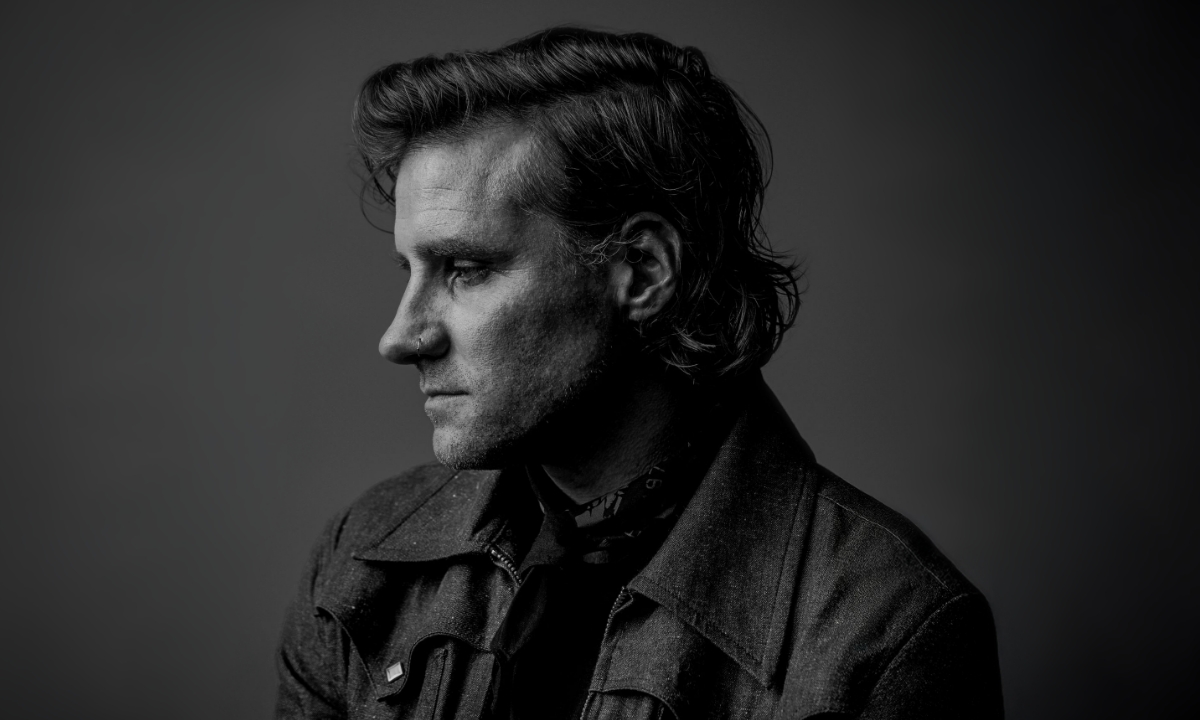
There’s a certain kind of silence that’s louder than anything else. It’s the noise in your head when you’re alone in a parking lot, checking your phone, staring off into nothing. That’s where Will Retherford lives right now, both literally in the visualizer for his latest single “Voices” and figuratively in the work he’s creating as Saynt Ego. He’s not trying to escape grief or quiet the internal dialogue. He’s learning to sit with it, and he’s inviting listeners to do the same.
You’ve said “Voices” is about getting stuck inside your own head. Walk us through how that song came together.
I fixate on a concept, then take musical references and ideas into the studio with Logan Bruhn, creating collaboratively until the song reveals itself. It’s built around restrained beats, atmospheric synths, and emotionally driven vocals exploring the internal noise that pulls you forward and holds you back at the same time.
The visualizer is just you alone in a parking lot. Why was that the right visual?
The visualizer (created by Logan Miller) reflects that liminal space—stillness, motion, and reflection suspended between where you’ve been and where you’re going. It’s simple, but it captures that feeling of being stuck inside your own thoughts in a way anyone can relate to.
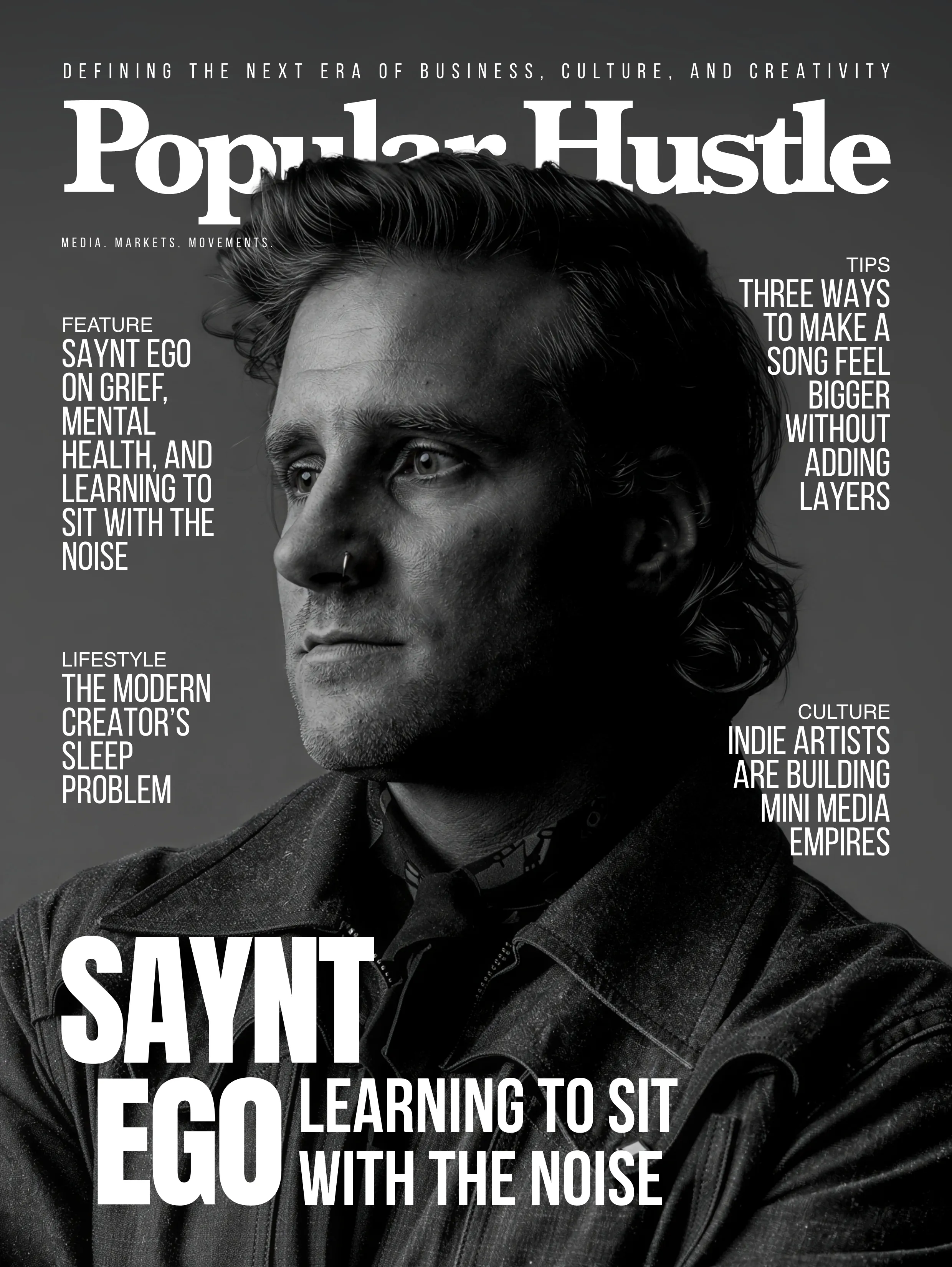
Your music explores grief, mental health, and transition pretty directly. What draws you to those themes?
Learning to create without chasing approval has been huge for me—making art I believe in, whether it’s received or not. Learning to believe in myself first before I expect others to follow. My music tells personal stories of loss, change, and becoming. It’s about learning how to sit with pain, move through liminal spaces, and grow into who you’re meant to be.
You’ve built a whole career as a producer with Citizens of Sound, featured in outlets like The New York Times and Entertainment Tonight. How does that production background shape your approach to making music?
As a producer, I’ve always been learning how to grow a team, move people in roles around like chess pieces in order to make the best possible art. Collaboration is your best friend. My music producer, Logan Bruhn, taught me that the best music is discovered in the room, not perfected beforehand.
For someone who’s never heard your music, how would you describe what you’re doing?
I make cinematic, electronic music about grief, transition, mental health, and becoming. I hope it gives people space to feel, reflect, grow, and breathe.
You’re juggling music releases and your first short film right now. How do those two worlds connect for you?
I knew I wanted to be a filmmaker as a kid, but music became my first true language for creating. The turning point came when I realized I didn’t have to choose. Film and music were always speaking to each other—I just needed to let them exist as one artistic path instead of two separate lives. Saynt Ego is part of a larger creative ecosystem where music, film, and storytelling inform one another.
What’s coming next?
I’m rolling out singles from Liminal Space while completing my first short film “Penny: A Portrait in Motion,” scored with original music. New music through spring, a full album in May, plus select shows, festivals, and the short film this summer. I’m focused on releases, sync, and growing an online audience, letting shows happen intentionally and organically.
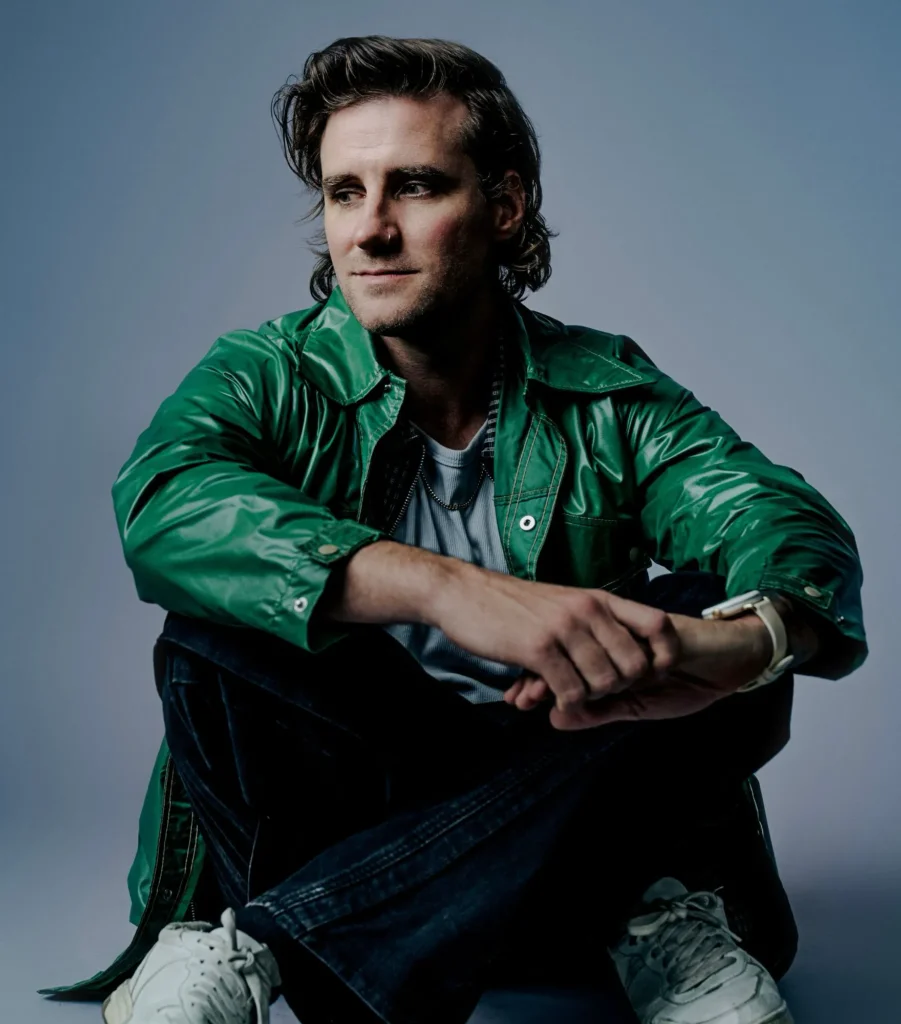
“Voices” clocks in at 3:40, built around a restrained production that values feeling over excess and space over noise. Released December 16, 2025, it’s the first chapter from the upcoming record Liminal Space. Retherford isn’t trying to fix grief or silence the noise. He’s learning to sit with it, and the music creates room for listeners to do the same.
Follow Saynt Ego on Instagram, YouTube, and TikTok. For Will’s filmmaking and production work, visit Citizens of Sound or follow Will Retherford on Instagram and IMDB.
Entertainment
Marloma Talks Learning to Stop Writing in Isolation and Trust the Chaos
Published
4 days agoon
January 6, 2026
Marloma used to write alone. Locked away with a piano or guitar, wouldn’t present anything until it met exacting standards, followed strict release timelines and marketing strategies. Everything controlled, everything polished before anyone else could hear it. Then came John Curtis-Sanchez, a guitarist and audio engineer whose approach is the complete opposite. He tries everything, isn’t afraid of vulnerability or imperfection in the early stages, lets happy accidents happen before worrying about polish.
It shifted everything. The songs she wrote still came from that place of isolation and perfectionism, but John’s production approach brought something different to the arrangements. Happy accidents in the studio, experimental choices she wouldn’t have made alone. Her songwriting instincts combined with his production sensibility created something neither could have done separately.
That’s essentially the story of Marloma, the Phoenix-based Sad Girl Indie-Pop Rock band that’s gone from a bedroom project to a full collaborative force involving 100 local creatives on their upcoming concept EP. With over 30k+ Instagram followers and a growing reputation across Arizona venues like The Marquee and Crescent Ballroom, Marloma isn’t just one person anymore. The band now includes guitarist and producer John Curtis-Sanchez, bassist and vocalist Kalleigh Gibson, keys player and backup singer Cassidy Brooke, and drummer Angelita Mia Ponce. Together, they’re making music for young women who feel too much and need to hear they’re not alone in it.
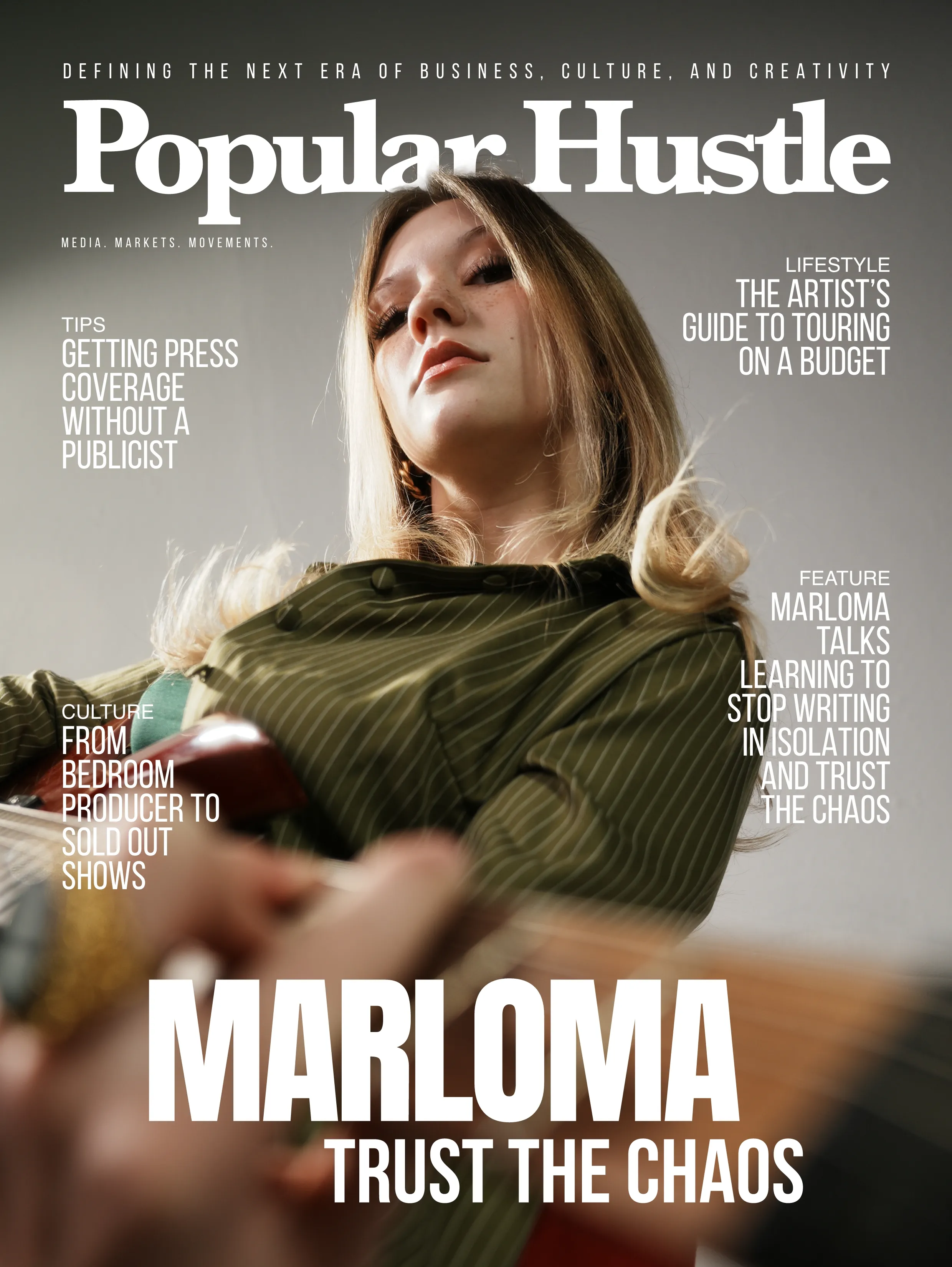
You’ve written nearly 300 songs. Take us back to the specific moment when you knew this was what you were going to do.
I have always known I loved writing songs and singing, but the pivotal moment in my life where I decided it was worth pursuing as a career path was when I was 14 years old. My friend of the same age was diagnosed with a rare form of cancer and tragically passed away.
It happened so fast, I still feel completely devastated that she is no longer here to make me laugh. I tried to process my grief the way I process all of my feelings, through songwriting. My mom heard me playing the tribute I wrote and asked to share it.
When my friend’s mom heard it, she asked me to perform it at my friend’s celebration of life. I remember feeling the weight in the air as I walked up to the front and began singing her song. It felt like the one moment that wasn’t absolutely dreadful because I felt that I truly made a connection. Not just with every attendee, but with her.
I was thanking her and making a promise to keep her memory alive and in that moment I kind of really felt like she understood. I don’t know what I believe in terms of anything spiritual but I know what I felt in that moment.
So I decided that even if I wasn’t a doctor or a lawyer, creating art was an important job and I wanted to be one of the people to do it. In fact, the reason that the Marloma brand is so heavily associated with the color green is to honor her. Green is her favorite color and the color of her eyes, which I liked to call her “emerald eyes.”
If someone’s never heard your music before, how would you describe what you do and what you hope they take from it?
I would describe my music as “Sad Girl Indie-Pop Rock” because it comes from a place of deep vulnerability and I think women might resonate with it the most. I truly hope that when people listen to my music they feel validated in any harsh emotions they may try to hide. I want them to really feel the words, which is why I implement prosody in my music. Essentially, I make the melodies match any words that could describe a melody. For example, if I say the word “high” I would make the melody go higher in pitch so that it subconsciously resonates with the listener.
Walk us through how you actually create. Where does it happen? What does the process look like from the first spark to the finished product?
For me, melody lines and lyrics have always come at the same time so I never have to worry about adding music to my lyrics or vice versa in post. Most times I’m home alone and I begin to play a chord progression on an instrument like a piano or guitar. Then, the rhythms and rhymes just kind of happen. Although lately inspiration has been striking me in the car. I have a complete library of single lyrics sung in my voice memos app accompanied by the sound of wind whooshing past my car windows and grainy noise from the air conditioner.
I have to capture it in the moment so I can mold and shape the idea when I’m home in front of my instruments. I never sit down with an idea or situation or feeling in mind when I write a song. In fact, I rarely am aware enough to understand what’s going on in my own head until I listen back to my completed song. That’s when I understand what feelings and tones I’ve been hiding from myself. Songwriting is truly therapeutic.
What’s something you had to figure out the hard way?
I had to learn that some people just aren’t going to take me seriously because I’m a woman in the music industry. And as a matter of fact, if they do, I probably have to earn that respect by doing twice as much as they’d expect. Talent won’t really get you anywhere if you’re not also constantly working on building your audience, honing your skills, educating yourself and making sacrifices. I’m happy to do all of those things, but it does feel like I’m often underestimated regardless.
What are you working on right now that you’re excited about?
I just released my heaviest rock song to date on January 1st, called “Win.” This song serves as the embodiment of female rage and revenge fantasy, so I’m very excited about the music video that’s in its final stages to accompany this song. I really put my trauma on display in this video and it was honestly pretty hard to film and relive but I couldn’t be more proud of how it turned out and the message it gets across. I won’t say too much on the plot but I will say that it is the darkest visual story I’ve ever experimented with and the thesis is that our vulnerability connects and empowers us as women.

The band is also working on a concept EP that’s been in development for five years, a cautionary tale about addiction wrapped in a love letter to Arizona’s creative community. It involves animated music videos, character vocalists, extended comic book lore, and a release show that’ll include instrument raffles and theatrical elements. It’s the kind of project that takes 100 local creatives to pull off, and it’s all building toward a show that’ll rival anything Marloma’s done before.
What started as writing alone in a room, perfecting every detail before anyone could hear it, has turned into something bigger than one person could have created. Each band member brings something different. John’s Punk-Rock guitar, Kalleigh’s Country-influenced bass lines, Angelita’s Latin and R&B drumming, all mixing with alternative-pop sensibility into something that doesn’t fit neatly into any single genre. It’s a “total genre melting pot,” and it works. It’s what happens when you stop trying to control everything and let other people’s strengths shape the sound. The songs that come out of that process, the ones with the happy accidents left in, those are the ones that end up connecting.
Marloma’s music is available on Spotify, Apple Music, YouTube, and SoundCloud. For more information, visit marloma.org and follow the band on Instagram, TikTok, and Facebook. Upcoming show dates are available on Bandsintown.
Entertainment
Zizzo World Is Building Momentum That’s Hard to Ignore
Published
2 weeks agoon
December 29, 2025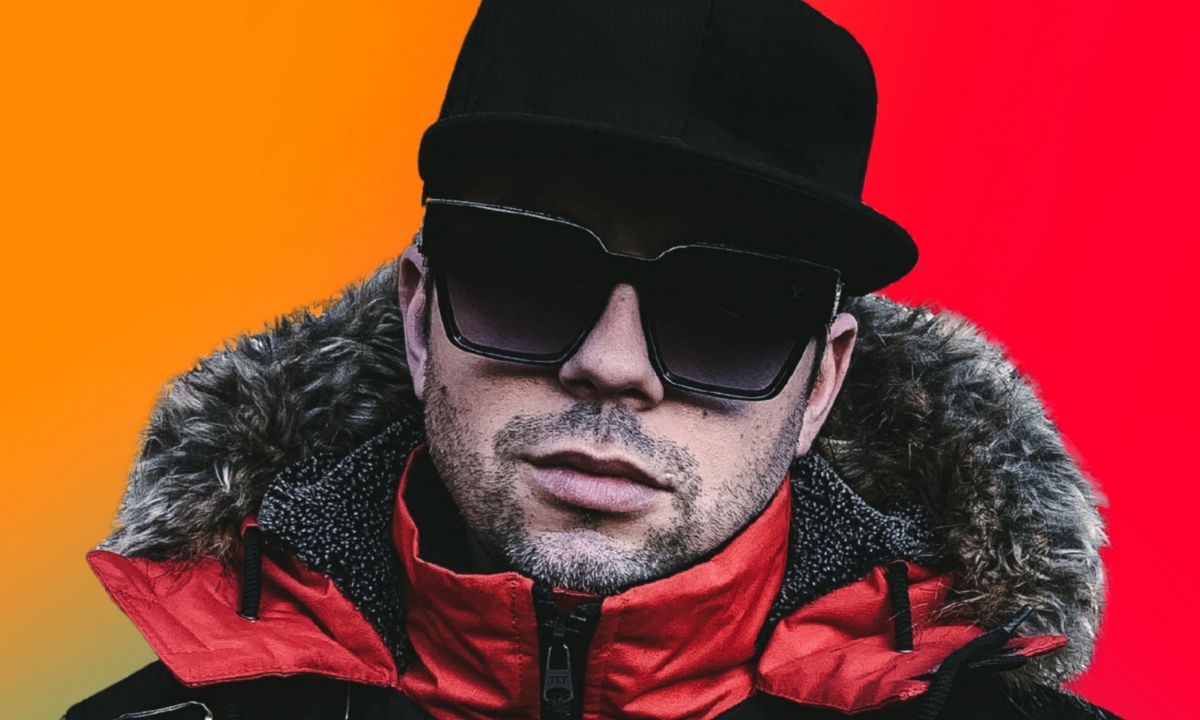
Most producers spend years chasing one big break. Sergiu Cociorva, the Moldova-born artist behind Zizzo World, is watching several arrive at once. After years of grinding in bedroom studios from New York to London, the pieces are finally clicking into place in ways that suggest he’s not just having a moment, he’s building momentum.
The numbers tell part of the story. Support from Tiësto, David Guetta, and Calvin Harris. Second place in Spinnup’s Dance Banger competition, judged by Topic. “Roller coaster” hitting No.4 on Spotify’s Top 50 in Latvia. But what makes Zizzo World interesting right now isn’t just the wins, it’s that he’s leveraging them into something bigger. He’s running two labels (One Mood Music and Enjoy Record), producing for other artists, and still pushing his own sound in new directions.
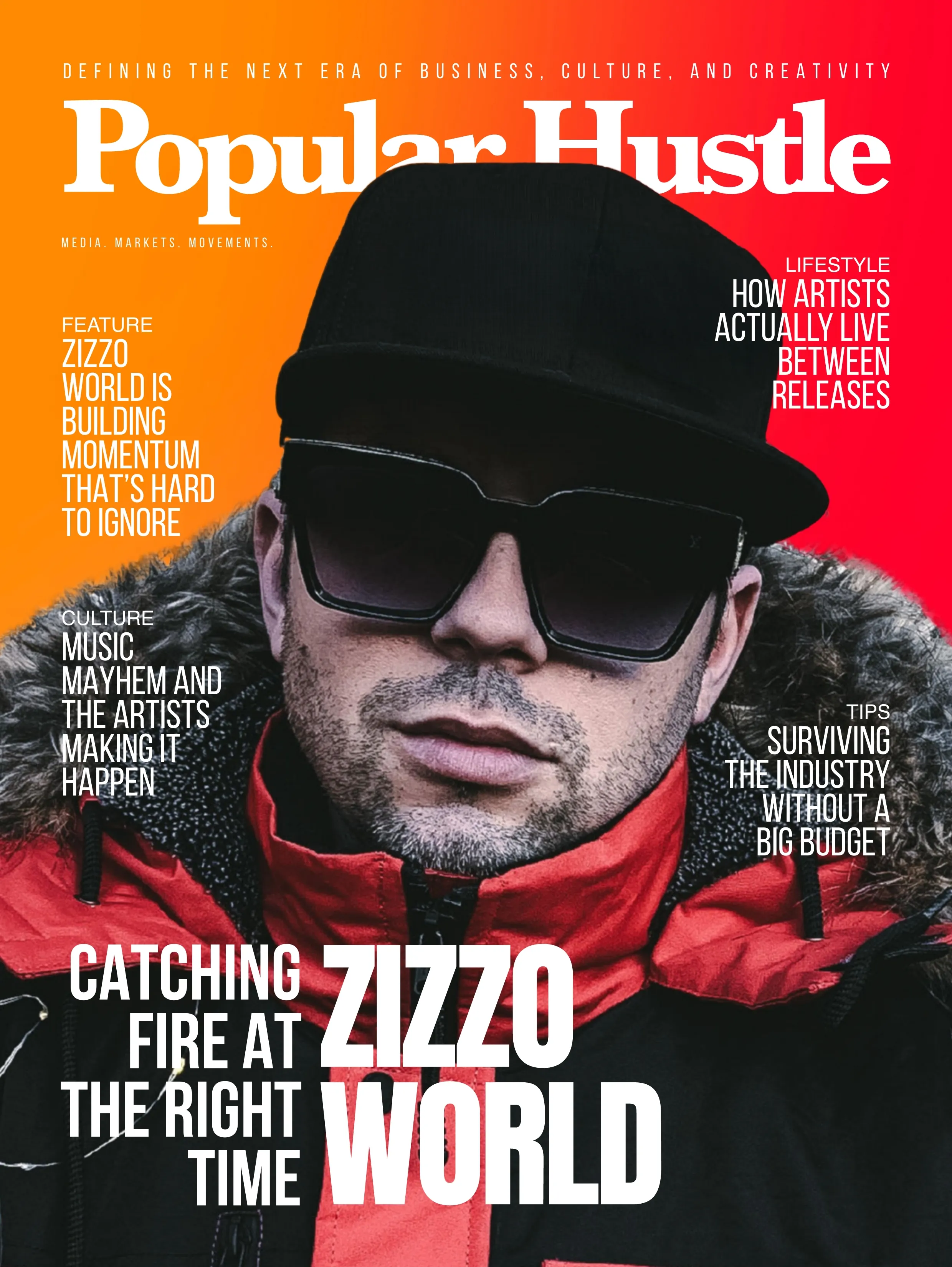
Case in point: “Body Moving,” his new Afro House track with EARTH VOX LABEL, which dropped November 28. It’s a 2:46 blend of afro rhythms and deep grooves that shows a producer confident enough to step outside his EDM and pop-house comfort zone. The move’s paying off. Blogs and curators are responding positively, and more importantly, it’s opening doors. He’s got a February release coming through Sundle Records via Warner Music Italy, with at least five more releases planned for 2026 and his first full album in the works.
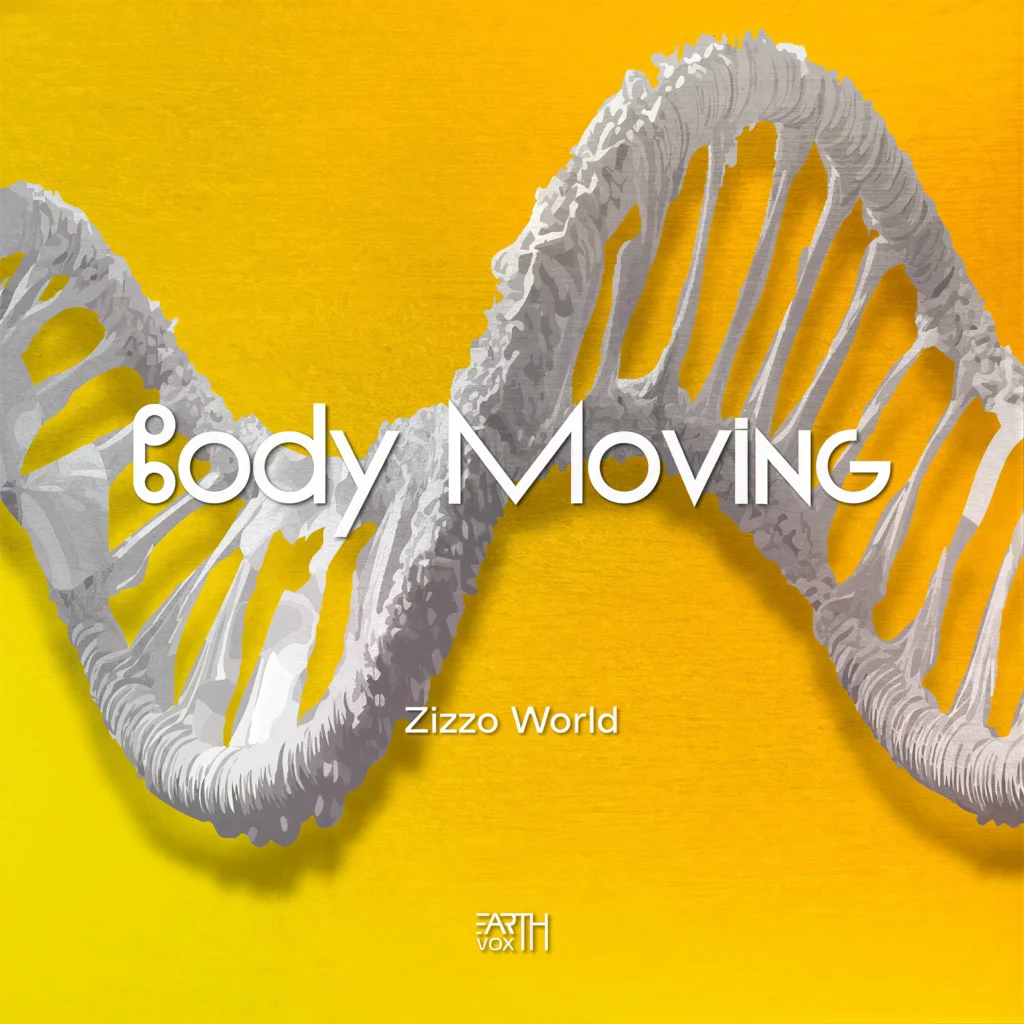
This didn’t happen overnight. Zizzo World picked up an accordion at 4, smashed countless brooms pretending they were guitars, played in a college band called Broken Paddle, and started producing in Logic Pro after moving to New York in 2008. Since then, it’s been almost daily work in whatever studio space he could carve out. These days that’s a bedroom setup in London, where he’ll sometimes wake up at 2 AM because inspiration doesn’t keep office hours.
What stands out is how realistic he is about the process. He’s upfront about managing expectations, trusting the grind, and understanding that teams can fall apart if people don’t believe in the timeline. He stopped singing before COVID to focus on production, a practical choice that freed him up to build the infrastructure he needed. Now he’s got two labels, artists he’s working with under both imprints, and enough momentum to start thinking bigger.
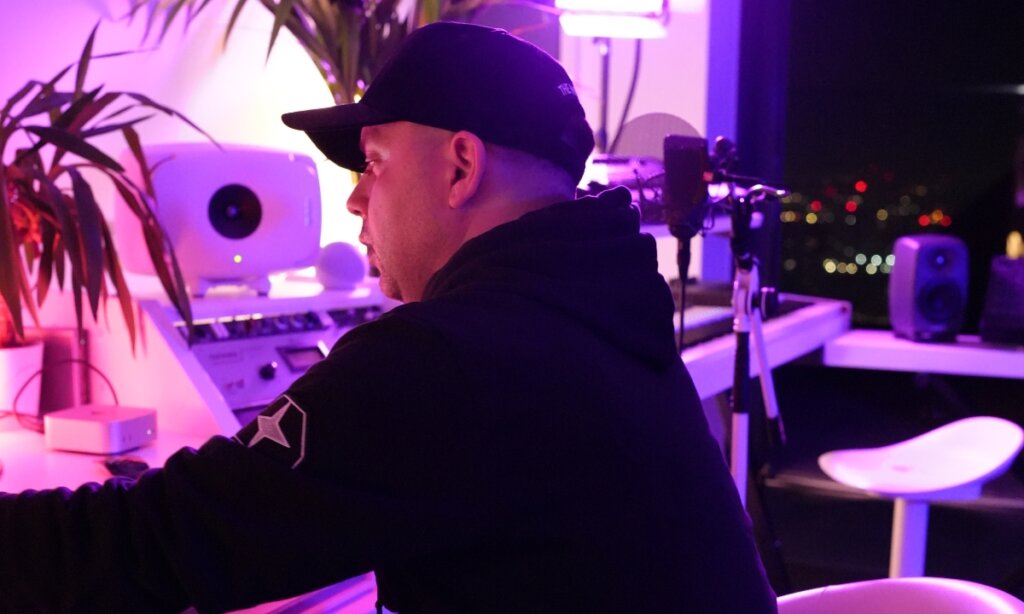
The music itself pulls from everywhere he’s been. Moldova, New York, London, all the collaborations with different artists and personalities along the way. He’s not chasing perfection, he’s chasing sincerity, trying to add value with each release. It’s working because it feels genuine rather than calculated.
His goal goes beyond streams or chart positions. He wants to create spaces where people connect, whether that’s with themselves or with each other. It’s ambitious, but he’s got the work ethic to back it up. Five releases next year, the first album, ongoing projects for artists under his two labels, he’s treating 2026 like someone who’s done the work and is ready to capitalize on it. With the infrastructure in place and the momentum already rolling, Zizzo World isn’t hoping for breaks anymore. He’s making them happen.
Connecrt with Zizzo World via Facebook, YouTube, Spotify, Apple Music, Instagram, TikTok, X, and SoundCloud.



Saynt Ego on Grief, Mental Health, and Learning to Sit With the Noise

Marloma Talks Learning to Stop Writing in Isolation and Trust the Chaos

Zizzo World Is Building Momentum That’s Hard to Ignore

Yash Kapoor Wants His Records To Feel Like Moments, Not Just Music

Inside the Amazon Reinstatement Process: The aSellingSecrets Approach

Golden Bay Beach Hotel — A Luxury Beachfront Escape in Larnaca, Cyprus

Nodust Writes His Lyrics Last and That’s Exactly the Point

Finding Strength in Walking Away Is the Real Message Behind Judy Pearson’s New Single

Joaquina’s “Freno” Captures the Push and Pull of Letting Go

Young Romanian Entrepreneur Explores Lisbon’s Thriving Startup Scene

Electric Ferries Will Save Money But Harbors Can’t Afford Them, Says Harbor Current Foundation Inc.

Leading With Purpose: How Dr. Rasheda Jackson is Redefining Success for Women in Business

The Quarantined Release ‘Aversion To Normalcy,’ An Album Born From War and Survival

Coastal Harmony: Discovering Cyprus with Lordos Beach Hotel as Your Haven

Meet Kaziboii, the Afrobeats Artist Mixing Drill Energy With Vibrant Soul

Jason Luv Dominates Charts While Inspiring New Wave of Multi Career Artists

Harley West | Inside the Mind of a Social Media Star on the Rise

Raw Fishing | Franklin Seeber, Known As “Raww Fishing” Youtuber Story

Jordana Lajoie Transforms Montreal Roots into Hollywood Success Story

A New Hollywood Icon Emerges in Madelyn Cline

Who is Isaiah Silva – The Story Behind The Music

Tefi Valenzuela Pours Her Heart into New Song About Breaking Free

G FACE Releases His New Single “All up,” and It’s Fire

Kaia Ra | Perseverance That Built a Best-Selling Author

Gearshift to Stardom: Nikhael Neil’s Revolutionary Journey in the Automotive Industry

Holly Valentine | Social Media Influencer & Star Success Story

Kate Katzman | Breaking Into Hollywood and Embracing Change

Thara Prashad | Singer Evolves to Yoga & Mediation Superstar

Tadgh Walsh – How This Young Entrepreneur is Making a Name for Himself

King Lil G | West Coast Hip Hop Genius Rises to Face With Ease

Tefi Valenzuela Pours Her Heart into New Song About Breaking Free

Kate Katzman | Breaking Into Hollywood and Embracing Change

Holly Valentine | Social Media Influencer & Star Success Story

Kaia Ra | Perseverance That Built a Best-Selling Author

Lil Ugly Baby XXX’s “Who?” – The Mixtape to Boost Your Playlist

Samuel Chewning Explains How Fitness Should Be A Personal Journey

Trending
-

 Business4 years ago
Business4 years agoJason Luv Dominates Charts While Inspiring New Wave of Multi Career Artists
-

 Entertainment3 years ago
Entertainment3 years agoHarley West | Inside the Mind of a Social Media Star on the Rise
-

 Culture4 years ago
Culture4 years agoRaw Fishing | Franklin Seeber, Known As “Raww Fishing” Youtuber Story
-

 Culture2 years ago
Culture2 years agoJordana Lajoie Transforms Montreal Roots into Hollywood Success Story
-

 Culture2 years ago
Culture2 years agoA New Hollywood Icon Emerges in Madelyn Cline
-

 Entertainment12 months ago
Entertainment12 months agoWho is Isaiah Silva – The Story Behind The Music
-

 Entertainment3 years ago
Entertainment3 years agoTefi Valenzuela Pours Her Heart into New Song About Breaking Free
-

 Culture3 years ago
Culture3 years agoG FACE Releases His New Single “All up,” and It’s Fire

